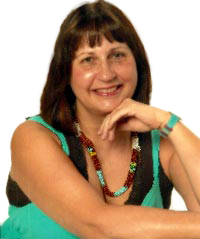When my oldest son was about eleven, fear of his mortality hit him like a ton of bricks. I did what I believed any loving parent should or could do. I lay under those bricks with him, barely able to breathe. For weeks my husband and I tried to console him but to very little avail. I would hear his running feet as they charged from his room to ours and my heart would lurch at the anticipation of what lay ahead. The tears streaming down his face would mimic my own internal ones coursing through my veins.
Through the clouded vision of my racing heart, I would tell him that he was too young to worry about death and that it was a long, long way away. I assured him that we too were healthy and would live long lives. In summary, in trying to fix his feelings of anxiety, I lovingly lied.
Unable to cope, we turned to a psychologist for help who, after interviewing my son, my husband and I, told me quite bluntly that my son would be fine but that I had a problem. These words were unwelcome but needed. I understood for the first time that my children were truly separate from me. My son’s demons were not mine to have or deal with. I would like to say that I became a better parent there and then but I didn’t. However, a seed had been planted and slowly my thinking and the way I approached parenting, changed.
Eighteen years later, my daughter faces a similar anxiety but I am happy to say that she is dealing with a different parent. I no longer give placatory untruths but instead allow her to feel what she wants to. Sometimes, she cries for a long time and I give her my time, my love and my arms. With every sob, I feel her strength grow and prepare her to face other adversities that life will most surely provide her.
I let her know that I understand how fearful she is and I sometimes share my own fears and tell her about her brother’s. I don’t take away her feelings as these are the very tools she needs to grow into a healthy adult. When we listen to our feelings, especially the uncomfortable ones, they become our emotional compass. We learn that we can steer our way through life by making our feelings work for us and not against us. When we understand what we feel even in the most adverse situations, we can choose courage, persistence and acceptance over helplessness and its close partner in crime, free-floating anxiety.







